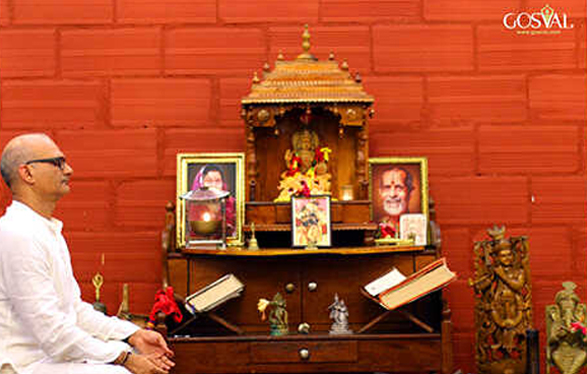
About Dr.Tanmay Goswami
Dr. Tanmay Goswami stands out as a distinguished Physician, Spiritual Educator, Author, and Motivational Speaker, as well as an Academic Administrator and Entrepreneur. He is deeply rooted in the practice of Traditional Indian Medicine, Ayurveda. His integration of Indian traditional sciences like Astrology, Alchemy, and Eastern Psychology has set him apart in his field. Holding the position of professor and Vice Chancellor at Sanskriti University in Mathura, Uttar Pradesh, With a profound commitment to nurturing future generations of Ayurvedic practitioners, Dr. Goswami has mentored over a thousand clinicians and specialists, contributing to the advancement of Ayurvedic research through both financial support and evidence-based data. His tenure at the Central Council of Indian Medicine and the Central Council for Research in Ayurvedic Sciences under the Ministry of AYUSH, Government of India, saw the establishment of an international cell for the Indian System of Medicine practitioners. Further elevating his contributions, Dr. Goswami served as an advisor for Ayurveda at the Quality Council of India, an autonomous body under the Ministry of Commerce and Industry.
Ayurveda: A Time-Honored System of Indian Medicine
Medical Astrology
Medical Astrology, also known as Graha Chikitsa within the context of Ayurveda, is a traditional approach that correlates the influences of celestial bodies on human health. According to this belief system, the positions and movements of planets and stars can have various effects on an individual's physical and mental well-being.
In Ayurveda, which is an ancient Indian system of medicine, Graha Chikitsa is considered one of the eight branches. It is used to diagnose and treat illnesses that are of unknown origin or are difficult to understand through conventional diagnostic methods. Practitioners of medical astrology may analyze a person's astrological birth chart, which includes the positions of planets at the time of their birth, to gain insights into potential health predispositions and imbalances.
It's important to note that medical astrology is not recognized as a science by the mainstream medical community and lacks empirical evidence to support its effectiveness. It is considered a pseudoscience by many and is often approached with skepticism. Nonetheless, it continues to be a facet of traditional and alternative medicine in various cultures, and some people find personal value in its practices.
Indian medical alchemy
Rasa Shastra combines concepts of alchemy and medicine, where practitioners, called "Rasayanas," believe in the transmutation of materials into highly refined and potent forms of medicine. These medicines, known as "Bhasmas," are created through intricate processes involving purification, detoxification, and transformation of raw materials. Metals like mercury, gold, silver, copper, iron, and zinc, as well as gems like pearl and coral, are commonly used in these preparations.
The process often involves several stages, including Shodhana (purification), Marana (incineration), and Amritikarana (nitrification), to ensure the substances are safe for therapeutic purposes. The end products are said to possess unique therapeutic properties and are used in minute quantities.
Indian medical alchemy is a complex and esoteric practice that requires extensive knowledge of both alchemical processes and Ayurvedic medicine. While it is highly regarded in traditional Indian medicine, the use of metals and minerals in medical treatments is also a subject of modern scrutiny due to potential toxicity if not prepared correctly. Research and regulation are ongoing to ensure the safety and efficacy of these ancient practices in contemporary times.
Eastern psychology
Buddhist Psychology: Rooted in the teachings of Buddhism, this approach to psychology focuses on understanding the mind and alleviating suffering through mindfulness, meditation, and following the Noble Eightfold Path. It emphasizes the impermanence of states of mind and the concept of no-self.
Yoga Psychology: Stemming from the ancient Indian practice of Yoga, which includes physical postures, breath control, and meditation, Yoga psychology explores the development of self-awareness, self-regulation, and higher states of consciousness.
Confucian Psychology: Based on the teachings of Confucius, this Chinese tradition emphasizes moral development, social harmony, and the cultivation of virtues such as benevolence, righteousness, propriety, wisdom, and faithfulness.
Taoist Psychology: Drawing from Taoism, this school of thought promotes living in harmony with the Tao, or the natural order of the universe. It emphasizes simplicity, spontaneity, and self-cultivation.
Ayurvedic Psychology: Part of the larger system of Ayurveda, the traditional Hindu system of medicine, Ayurvedic psychology focuses on balancing the body and mind through diet, herbal remedies, yoga, and meditation.
These Eastern approaches to psychology often prioritize balance, self-awareness, and the interconnectedness of mind and body. They offer a different perspective on mental health and well-being compared to the more clinical and pathology-focused approaches that are often found in Western psychology.




